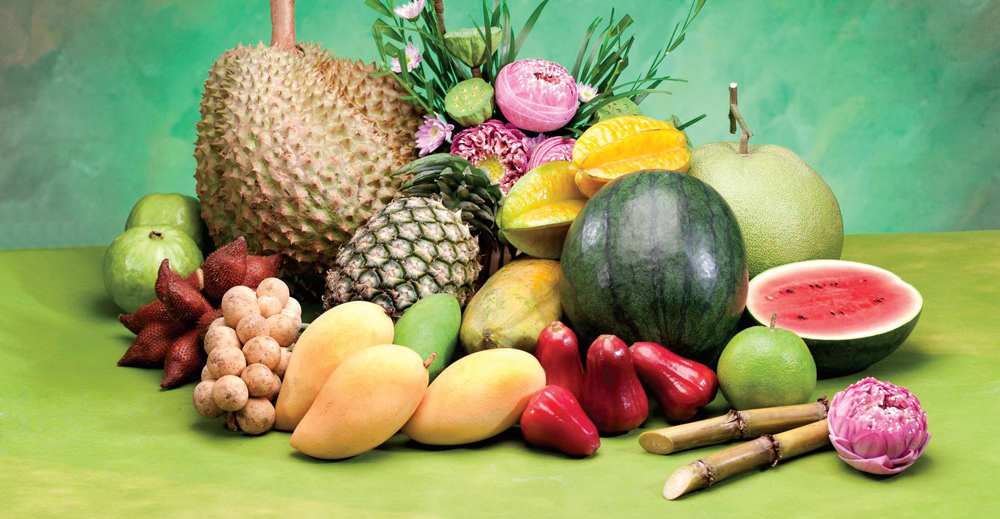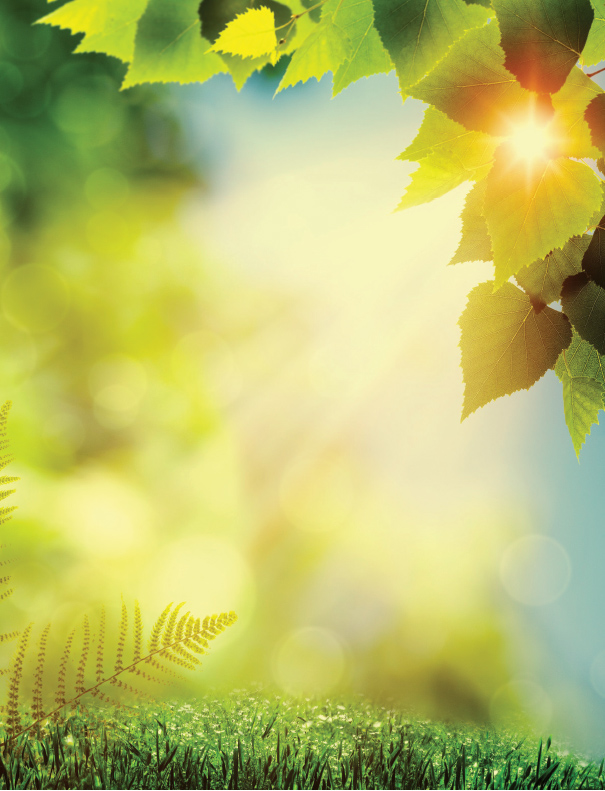In Ayurveda there are three seasons, one for each dosha. Each season has the attributes of that particular dosha. In the spring it is Kapha time, when we wake up from winter and slowly spring to freshness. Summer is Pitta time, when the fiery sun brings us much heat. Fall and winter are the Vata time of year, when nature expresses itself as more cold and dry. Each of the doshas has a tendency to increase within our systems during its particular season. So a dry, cold and windy winter is likely to increase Vata.
When Vata is out of balance we might experience these conditions in our mind or body:
- Forgetfulness
- Overactive mind
- Worry or anxiety
- Restlessness
- Rough or dry skin
- Constipation
- Insomnia
- Discomfort in the joints
- Fatigue
- Below-average weight
Fortunately, there is a lot we can do to pacify Vata, and allow ourselves to be perfectly balanced despite the chill in the air!

Tips for balancing Vata
- Do your best to stay warm. Wear clothing made with soft fabrics in warming, calming colors like greens and golds. Vatas are extremely sensitive to touch, so avoid itchy wool. Cover your ears and your head when you go outside into the cold and wind. When inside, make sure that there is enough moisture in the air. Heaters tend to dry out the air, further aggravating Vata. Use a humidifier, and avoid sitting near drafts or fans.
- Avoid stimulants. Coffee might sound great on a cold day, but caffeine is one of the worst aggravators of Vata. Instead opt for some Vata tea, or some warm water with lemon and sip it throughout the day.
- Get to bed by 10 pm to get the sleep you need. This is especially vital for Vata types, who tend to push themselves to the point of physical or mental exhaustion. Keep a regular daily routine as much as possible. Rise at the same time each day; eat meals at the same time each day.
- Meditate. For the overactive Vata mind, meditation is like medicine. It is one of the best ways to find calm and stillness amidst the hustle and bustle of our busy lives. Vata-Pacifying Diet
- Good eating habits are essential to keep Vata in check. We need to eat three nourishing meals a day, and eat them at around the same time each day. Don’t skip meals, especially breakfast. Eat lunch, the largest meal of the day, between noon and one o’clock in the afternoon, when digestion is strongest. For dinner, eat a lighter meal, such as mung bean soup. Dinner should be at least three hours before bedtime. If you need a snack in between meals, have a handful of almonds, or some raisins that have been soaked in water. Avoid dried fruits, as these aggravate Vata. Most nuts are Vatapacifying, but almonds are particularly good.
- “Warm” and “cooked” are key factors in the Vatapacifying diet. Think comfort foods when planning your meals. Nourishing soups and stews, hot cereals, hearty grains, and yummy desserts right from the oven all taste great on cold winter days. Choose soup rather than salad when ordering at a restaurant.
Specific food recommendations
Grains: Rice and wheat are best for pacifying Vata. Reduce barley, corn, millet, buckwheat, rye and oats.
Fruits: Look for fruits that are local, fresh, and in season for your community. Favor sweet, sour, or heavy fruits, such as oranges, bananas, avocados, grapes, cherries, peaches, melons, berries, plums, pineapples, mangos and papayas. Reduce dry or light fruits such as apples, pears, pomegranates, or cranberries.
Vegetables: All vegetables should be eaten cooked, rather than raw. Beets, cucumbers, carrots, asparagus and sweet potatoes are particularly good. Cook vegetables with Ghee (Clarified butter) or oil and Vata-reducing spices. The only vegetables to avoid would be sprouts and cabbage. Beans can be difficult for Vatas to digest, but tofu and mung beans are good.
Spices: Vata-reducing spices include cardamom, cumin, ginger, cinnamon, salt, and cloves. Cooking the spices into your food helps the body to better assimilate the benefits of the spices.
Taste: Favor foods with the tastes of sweet, sour and salty. Reduce foods with the tastes of bitter, pungent and astringent.

Vata skin and beauty treatments
Vata skin tends to be dry and rough. Because it is thinner than other skin, it may show its age more quickly. Vata skin is cool to the touch. When you shake hands with a Vata person you notice this right away! Vata skin gets dehydrated easily, so it needs lots of moisture to stay in balance. During the cold, dry months of this season, we can all benefit by adding some Vata-balancing recommendations into our beauty regime.
For Vata skin to stay youthful, the skin care products used should be very nurturing. They should include some essential oils or herbs in combination that can nourish the skin and rehydrate it.
Skin care tips
- Provide added nourishment to your skin by including whole grains and leafy greens in your diet.
- Stay hydrated inside and out. Drink lots of warm water throughout the day. Include some healthy fats such as Ghee (Clarified butter) or olive oil in your diet for added lubrication.
- Eat plenty of sweet juicy fruits; they help cleanse the body from within and provide hydration as well.
- Use a gentle, moisture-balancing cleanser and splash your face with warm water several times when you cleanse.
Follow up with a gentle, all-natural moisturizer to keep the skin hydrated. Use a body lotion after your bath or shower.
- Make sure you get enough sleep. Everything we have heard about “beauty sleep” is true!

Use a gentle, moisture balancing cleanser and splash your face with warm water several times when you cleanse. Follow up with a gentle, all natural moisturizer to keep the skin hydrated. Use a body lotion after your bath or shower.

Massage
Abhyanga, warm oil self-massage, is great for all the doshas, and it is especially beneficial for Vata types. It helps to keep the skin lubricated, and it helps the skin to release toxins. Abhyanga also helps to tone the muscles and soothe the nervous system. The massage can be done in the morning before your shower, or in the evening before bed.
Sesame oil works beautifully for Abhyanga during Vata season. Start the massage by warming the sesame oil to skin temperature, and drizzle a small amount of oil into the palms of your hands. Massage the top of your scalp (on days when you wash your hair); pay particular attention to the circumference of your ears, and the soles of your feet. Massage with long strokes on your limbs, and round strokes on your joints. You may also want to gently rub a drop of sesame oil inside your nasal passages, which tend to become dry during winter. It’s best to leave the oil on the body for 20 minutes before washing it off in a warm shower or bath.
Hair can be especially dry during Vata season, and you’ll see beautiful benefits from doing a scalp massage. The motion of the massage helps to increase circulation, cleanse the pores, and slough off dead skin cells. All of which promotes healthier hair growth. Oil is lubricating, and conditioning to the hair. You can use the same massage oil that you use for your skin. Leave the oil on the hair for an hour or so before washing it out for maximum results.
Most importantly, during Vata season it is ideal to give ourselves some time and space to sit and create. Too often we are stuck in “work” mode, in front of the computer or commuting in traffic. When we allow our creative juices to flow, whether it’s through art, music, writing, baking, or any of our passions, we bring balance to our lives.
Balance is what Ayurveda is all about. We need to bring you into balance to be your best you.The you that you already are but may not even know it. You can do this during Vata season, or any season, and live your healthiest, happiest, and most productive life!
 Lissa Coffey is a lifestyle and relationship expert who serves up an inspiring blend of ancient wisdom and modern style. She appears frequently on television and radio, and contributes to national publications with her insightful and compassionate approach to modern-day issues. Coffey is also a bestselling author and has written books like “Song Divine: A New Lyrical Rendition of the Bhagavad Gita.” WhatsYourDosha.com.
Lissa Coffey is a lifestyle and relationship expert who serves up an inspiring blend of ancient wisdom and modern style. She appears frequently on television and radio, and contributes to national publications with her insightful and compassionate approach to modern-day issues. Coffey is also a bestselling author and has written books like “Song Divine: A New Lyrical Rendition of the Bhagavad Gita.” WhatsYourDosha.com.




